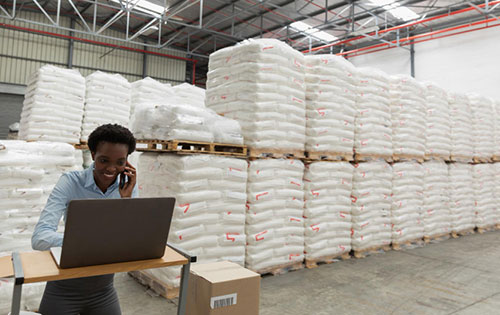7 Ways Food Manufacturers Can Reduce Inventory Costs Without Sacrificing Quality
Built For


Inventory is one of the largest expenses for food manufacturers—and also one of the most difficult to control. From managing perishable products to navigating unpredictable demand, even small inefficiencies can lead to costly waste, excess stock, and lost sales.
The good news? With the right strategies and tools, you can maintain product quality, improve cash flow, and keep customers happy while lowering inventory costs. Here are seven proven ways to do it.
1. Improve Demand Forecasting Accuracy
When demand forecasts are off, food manufacturers risk producing far too much or not enough—both of which eat into profits. Overproduction leads to spoilage and waste, while underproduction results in missed sales opportunities.
Why It Works: Accurate forecasts prevent overbuying raw materials, cut down on excess finished goods, and align production with real customer demand.
How Acctivate Helps: Acctivate allows you to analyze past sales, seasonal patterns, and real‑time data to accurately generate forecasts that prevent costly overproduction.
2. Implement Just-in-Time (JIT) Purchasing

Carrying large amounts of raw ingredients ties up cash and increases the risk of spoilage, especially when shelf lives are short. Ordering closer to the point of production keeps inventory lean and fresh.
Why It Works: JIT frees up capital, reduces spoilage risk, and ensures fresher ingredients for production.
How Acctivate Helps: Acctivate creates reorders based on your production demand so you can generate purchase orders exactly when they’re needed, avoiding overstocks and waste.
3. Optimize Inventory Turns
Slow-moving products take up valuable space, lock up working capital, and can lead to obsolescence. Regularly tracking turnover rates reveals which products are worth keeping in stock and which should be reduced or removed.
Why It Works: High inventory turnover means fresher stock, less storage cost, and more cash available for other business needs.
How Acctivate Helps: Acctivate’s reporting highlights low‑turn items so you can take action—whether that’s running a promotion, reducing production, or phasing out a SKU.
4. Reduce Spoilage with Better Expiration Tracking
Perishable goods require careful monitoring to ensure they’re sold before expiration. Without an organized method for tracking dates, products can quietly spoil in storage, eroding profits.
Why It Works: Staying ahead of expiration dates means more product sold at full price and less lost to waste.
How Acctivate Helps: Acctivate’s lot and batch tracking with automated alerts ensures products are rotated correctly and near‑expiry items are flagged before they spoil.
5. Consolidate SKUs Where Possible
Carrying too many product variations complicates purchasing, inventory tracking, and production planning. Over time, this can drive up storage costs and dilute profit margins.
Why It Works: A leaner product lineup simplifies purchasing, reduces carrying costs, and focuses resources on high‑margin items.
How Acctivate Helps: Acctivate’s sales analytics identify underperforming SKUs, making it easy to streamline your product mix without hurting sales.
6. Align Inventory with Production Planning

When inventory data isn’t aligned to production schedules, manufacturers often over‑order raw materials or scramble to source them at the last minute. Both scenarios lead to unnecessary costs.
Why It Works: This prevents over‑ordering, reduces leftover raw material waste, and keeps production aligned with confirmed demand.
How Acctivate Helps: Acctivate monitors inventory levels and alerts you when materials are near their restocking point, so you are aware when and how much to purchase.
7. Leverage Real-Time Inventory Visibility
Without up-to-date inventory data, costly mistakes happen—like double ordering, missing a reorder point, or running out of a key ingredient during a production run.
Why It Works: Real-time visibility helps teams make informed decisions, prevent shortages, and keep supply chains running smoothly.
How Acctivate Helps: Acctivate provides live inventory visibility across locations and departments so every team works from the same accurate, updated data.
Final Thoughts
Lowering inventory costs isn’t about cutting corners—it’s about making smarter, more informed decisions. By tightening your forecasting, aligning purchasing with demand, and using technology to improve visibility, food manufacturers can reduce waste, free up capital, and boost profitability.
Watch an on-demand demo of Acctivate to see how our tools can help you optimize inventory management and cut costs without sacrificing quality.
Call us at 817-870-1311


